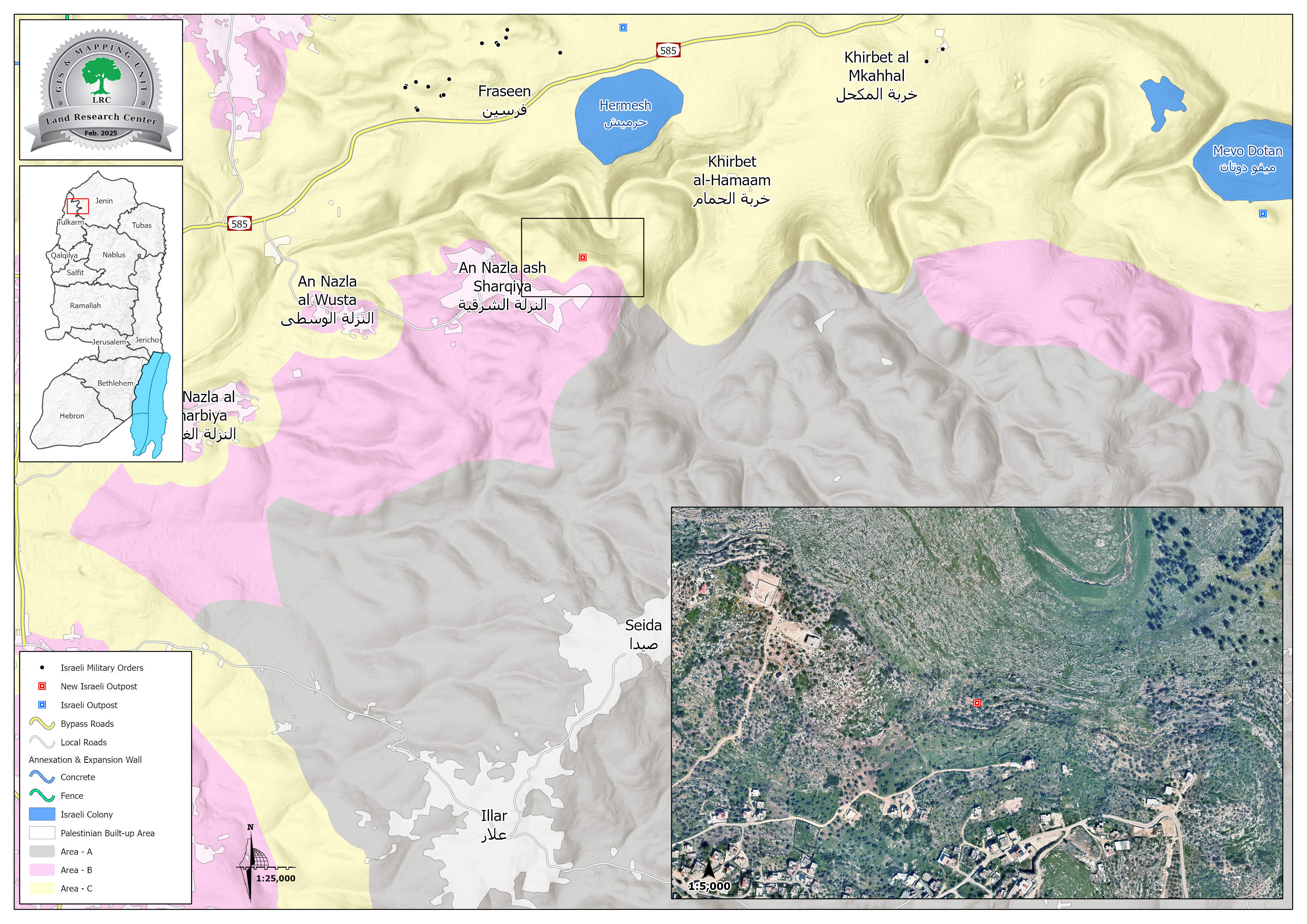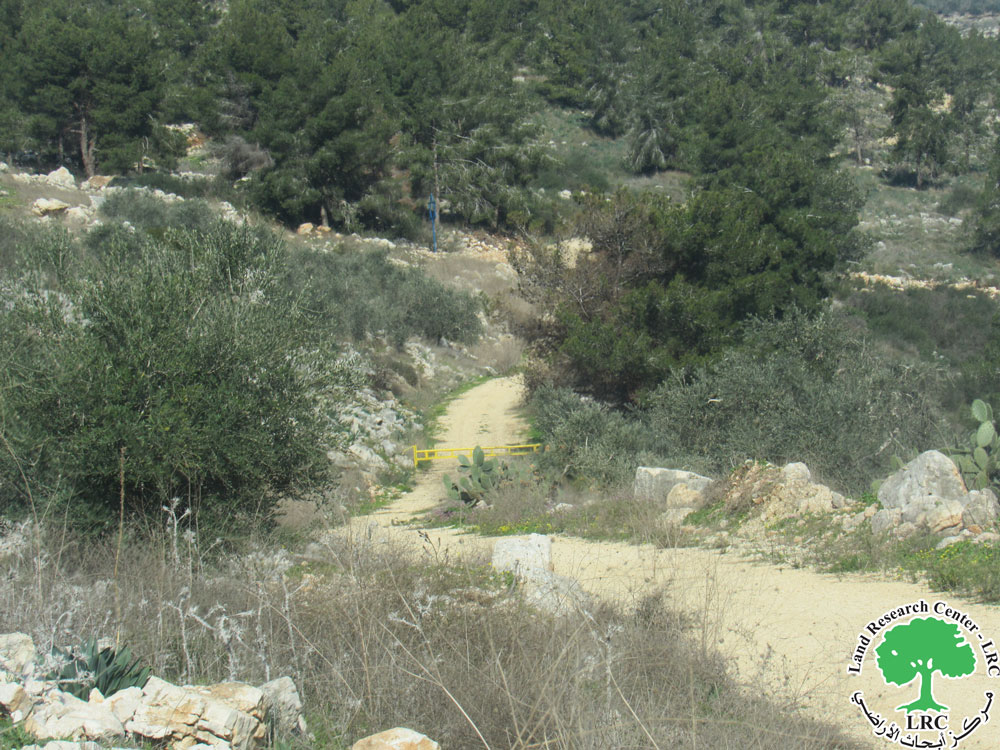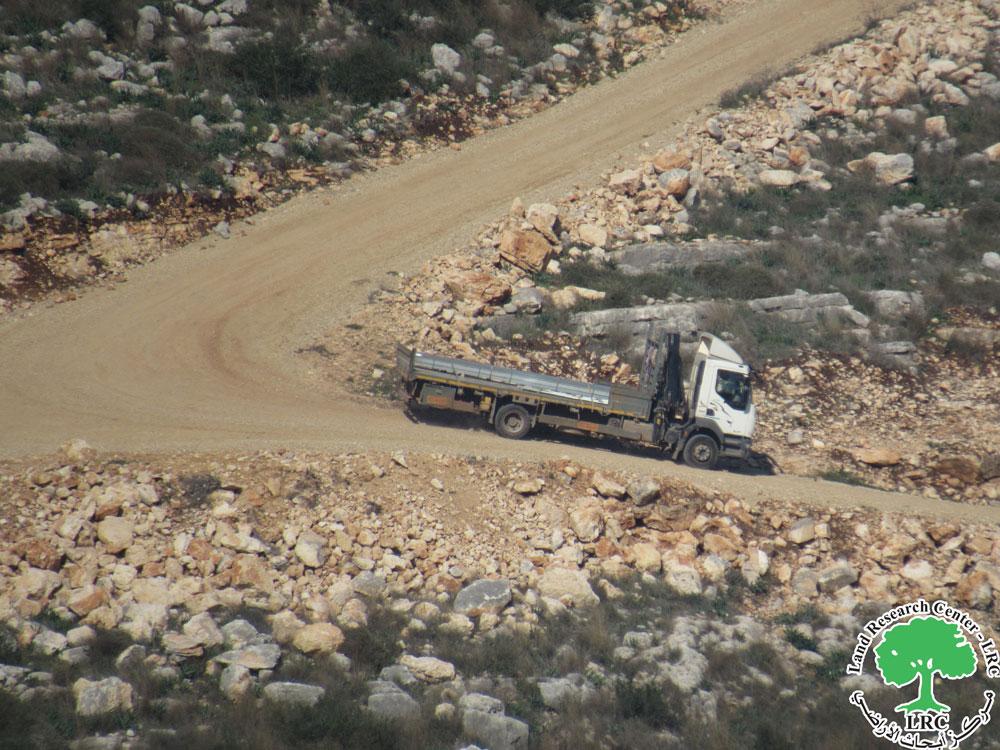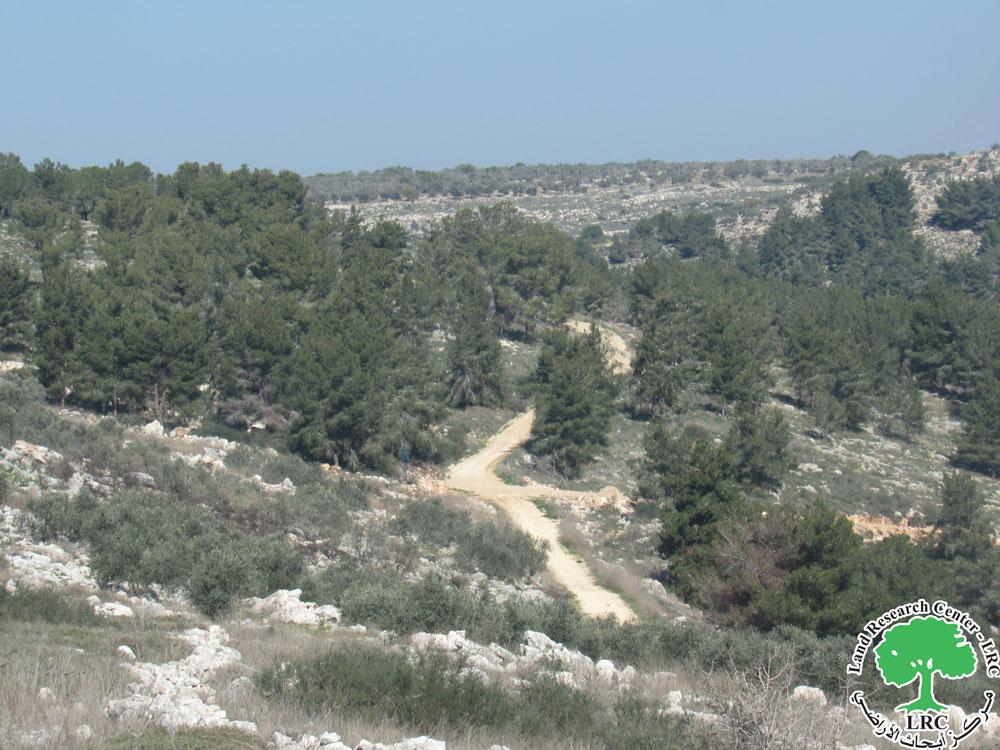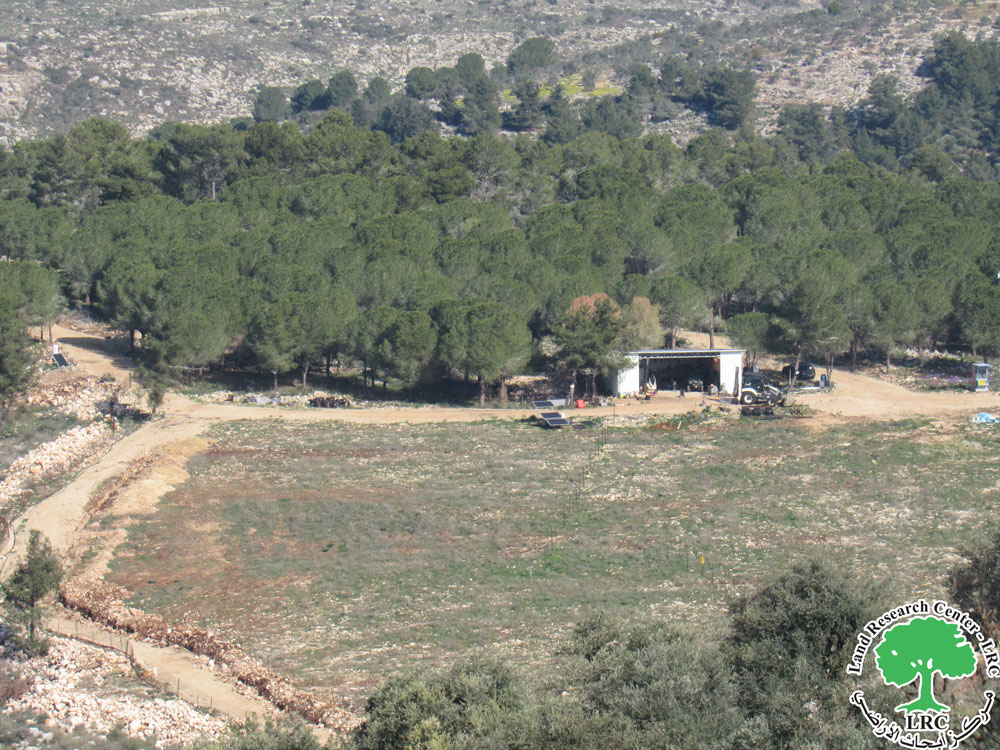Settlers Install Light Poles After Closing Agricultural Lands in An Nazla ash Sharqiya Village in Tulkarm Governorate
- Violation: Installation of light poles and closure of agricultural roads.
- Location: An Nazla ash Sharqiya village north of Tulkarm city.
- Date of Violation: 23/01/2025.
- Perpetrating Party: Settlers from "Hermesh" settlement and its outpost.
- Affected Party: Farmers who own the targeted agricultural lands.
Description:
The pastoral settlement outpost established on the lands of An Nazla ash Sharqiya village north of Tulkarm governorate continues its ongoing expansion towards the agricultural lands in the village. The village witnesses daily attacks by settlers residing in "Hermesh" settlement in addition to that pastoral outpost located in the "Al-Sunbula" area of the village's northern lands, which was established about a year ago.
It is reported that a group of settlers from the settlement outpost occupying the village lands proceeded on Thursday morning (23/1/2025) to install electric poles in parallel with installing a new metal gate that closed off farmers' lands in the Tahr Al-Burayda area of the village's northeastern lands near that outpost.
For his part, the head of the Village Council, Mr. Wael Taher Kataneh, stated:
"For a short while now, we have been suffering from settlers' harassment due to that pastoral outpost, where settlers have created a road that cuts through our grazing lands. They had previously seized lands classified as forested areas to establish an outpost there."
He added:
"Today, that outpost continues its encroachment towards the adjacent olive fields by installing light poles between olive trees across an area of 80 dunums. In parallel, they installed a new agricultural gate on an old agricultural road at the end of last year, which used to serve those lands planted with ancient olive trees that were a source of livelihood for many families in the village. However, the occupation prevented farmers from entering or even being present there after the declaration of war on Gaza. Today, after the settlers installed an iron gate in preparation for completely isolating it, and today light poles were installed between those lands, to enable settlers to take control of them completely."
It should be noted that those following the events An Nazla ash Sharqiya village fully realize that the events ultimately aim to double the area of lands subject to settlement purposes, especially the area of "Hermesh" settlement and its affiliated outpost. The settlers' creation of roads, closure of paths that farmers used to take, preventing them from going there, and then installing light poles between olive fields conclusively proves the existence of a plan to Judaize and confiscate more than 50% of the village's entire area.
It is worth mentioning that "Hermesh" settlement was established in 1980 on part of lands confiscated from Jenin governorate and Tulkarm towns and villages (Qaffin, An Nazla ash Sharqiya , and An Nazla al Wusta). Its population as of 2018 was about 300 people.
Settlers from "Hermesh" Target Olive Fields and Agricultural Lands in the Village of An Nazla ash Sharqiya:
In November 2023, settlers began constructing a colonial road in areas 14 and 12, specifically in the Al-Maghara site, which the occupation classifies as "state land." At that time, the road was 1 km long and threatened 80 dunams of agricultural land. Click here to read the report.
In October 2024, settlers established a colonial outpost on Al-Maghara lands, approximately 400 meters away from the "Hermesh" settlement. They also extended the previously constructed colonial road by an additional 500 meters, making it 1.5 km long. As a result, this outpost has deprived Palestinian farmers of access to 200 dunams of land. Click here to read the report.
Since the beginning of 2025, settlers have been conducting land leveling to complete the colonial road, which has now reached a length of 2 km, connecting the outpost to the "Hermesh" settlement. This development has effectively sealed off the entire area, particularly after the installation of an iron gate in front of vast agricultural lands, including 80 dunams of olive groves—an essential source of income for local farmers. Other lands, previously used as grazing fields for livestock, have also become inaccessible since October 7, 2023. Click here to read the report.
Today, the settlers are reinforcing their presence in the area by adding light poles along the colonial road and continuing to keep the iron gate closed, preventing Palestinian farmers from accessing their lands.
Hermesh Settlement:
The Hermesh settlement was established in 1980 on lands classified as "state land," originally belonging to the villages of Qaffin, An Nazla ash Sharqiya, and Al-Nazla Al-Wusta, located north of the city of Tulkarm. As of 2018, the settlement had a population of approximately 300 residents.
The expropriation of Palestinian land to serve settlement expansion and settlers is a manipulation of the historical ownership and use of land in Palestine, bypassing Ottoman land laws and directly defying international law and UN resolutions. The confiscation of land constitutes a clear and grave violation of the 1949 Geneva Convention, as well as various international laws and treaties concerning the seizure of land and natural resources.
International Covenant on Civil and Political Rights, Article 1:
- All peoples, in pursuit of their own goals, have the right to freely dispose of their wealth and natural resources without prejudice to any obligations arising from international economic cooperation based on the principle of mutual benefit and international law. And in no case may a people be deprived of its own means of subsistence.
Universal Declaration of Human Rights, 1948, Article 17:
- Everyone has the right to own property alone as well as in association with others.
- No one shall be arbitrarily deprived of their property.
- مشروع: حماية الحقوق البيئية الفلسطينية في مناطق "ج" SPERAC IV - FCDODisclaimer: The views and opinions expressed in this report are those of Land Research Center and do not necessarily reflect the views or positions of the project donor; the Norwegian Refugee Council.
إخلاء المسؤولية: الآراء ووجهات النظر الواردة في هذا التقرير هي آراء ووجهات نظر مركز أبحاث الأراضي ولا تعكس بالضرورة وجهات نظر أو مواقف الجهة المانحة للمشروع؛ المجلس النرويجي. للاجئين
